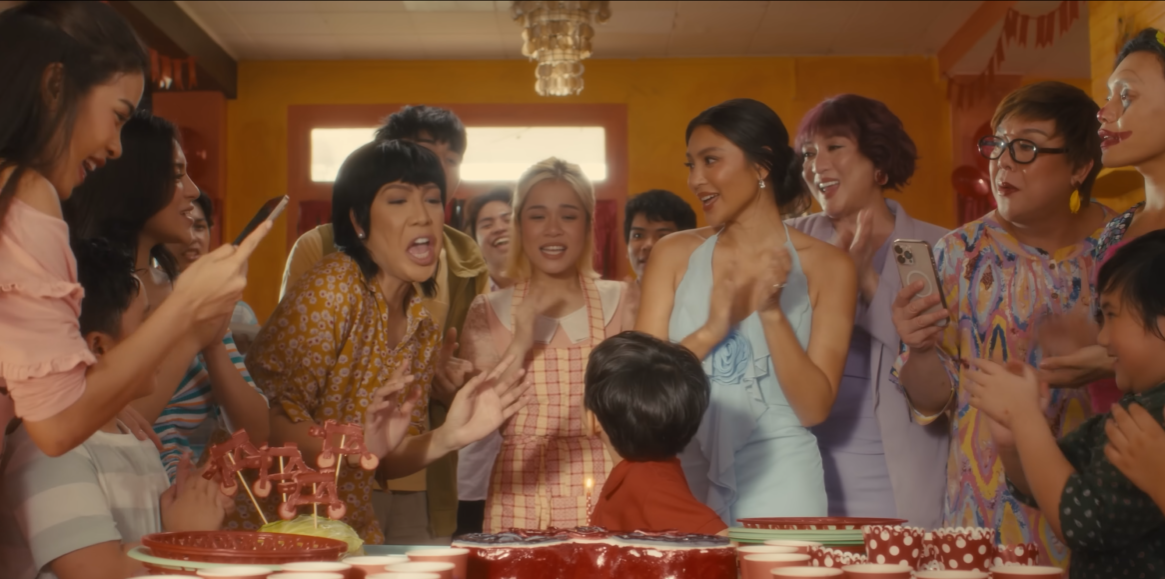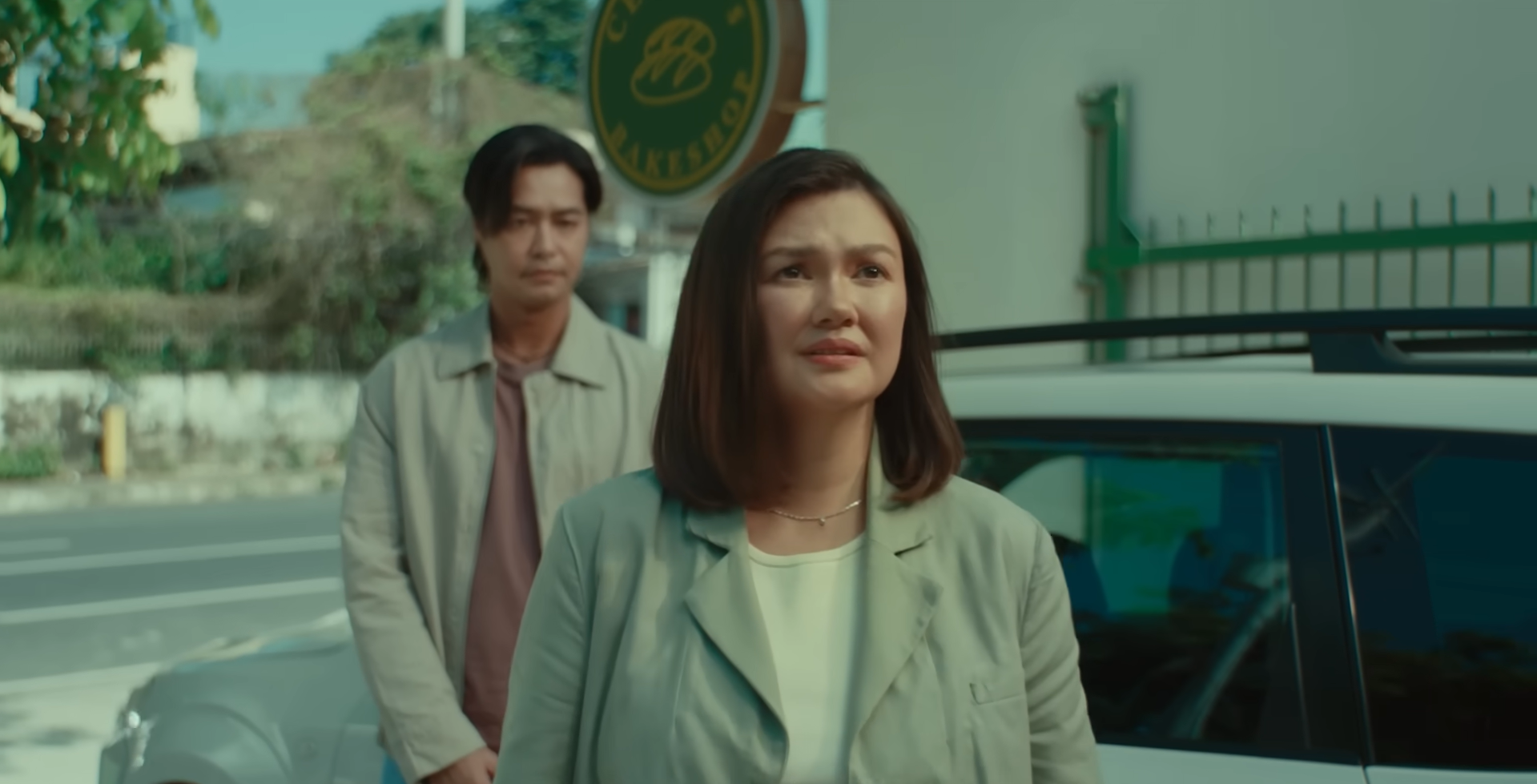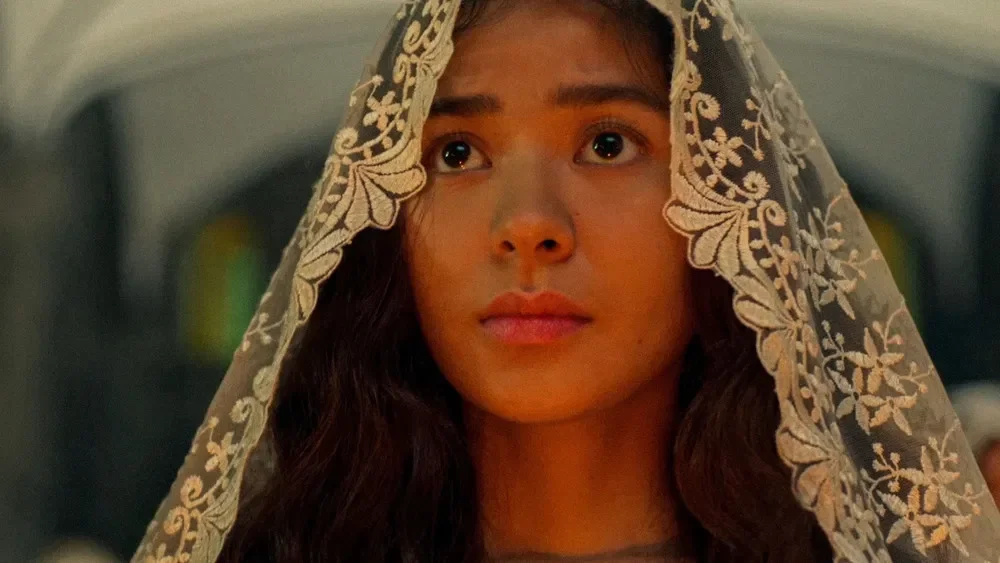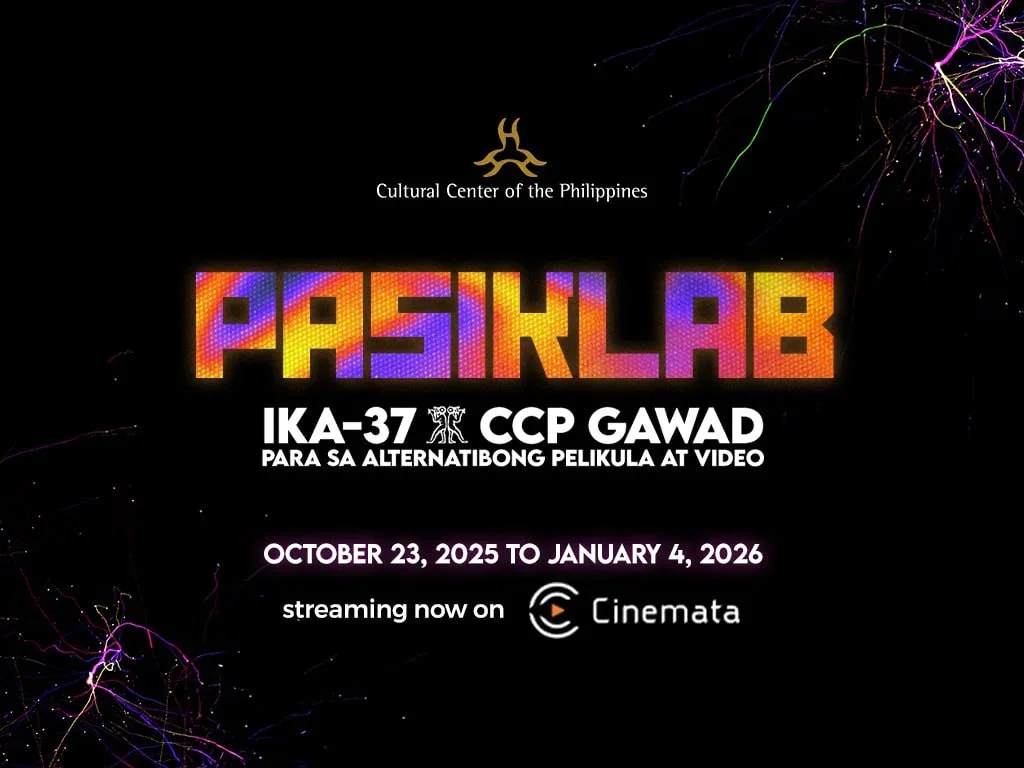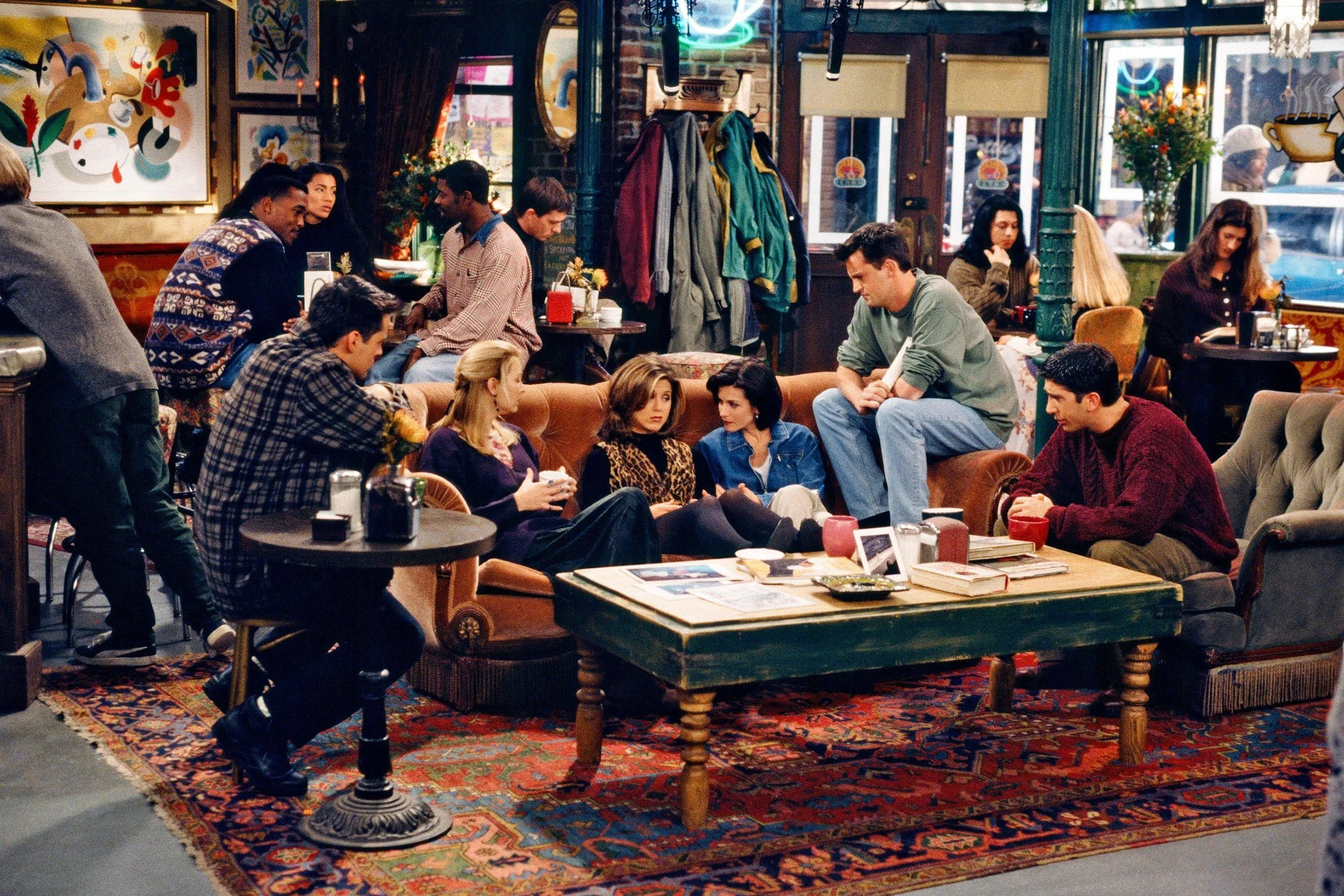‘Chainsaw Man – The Movie: Reze Arc’ REVIEW: An Explosive Entanglement
‘Chainsaw Man – The Movie: Reze Arc’ REVIEW: An Explosive Entanglement
Reze (Reina Ueda) feeling appreciative for an unexpected token | Still courtesy of MAPPA and Sony Pictures Entertainment
It’s interesting to consider the existence and final product of Chainsaw Man – The Movie: Reze Arc in the context of what came before it, original source, and adaptation-wise. Tatsuki Fujimoto’s twisty story with a melancholic edge about an impoverished boy who can turn into a being made of chainsaws in a world where Devils exist was one of manga anthology Weekly Shonen Jump’s biggest hits of the early 2020s, before it received an anime adaptation.
Prodigious animator Ryu Nakayama, under animation studio MAPPA, took the manga’s ultraviolent, tone-shifting madness into a more elevated and subdued “cinematic” direction as a homage to Fujimoto’s cinephile fixations.
The result was a fascinatingly moody outing that emphasized some of the original source’s strengths, such as the juxtaposition between mundane interactions and strange supernatural imagery, and the creeping dramatic undertones of the effects of abuse and exploitation on numerous levels. At the same time, it de-emphasized other aspects, including the sharpness and absurdity of the plot turns and action (which birthed the affectionate phrase, ‘Chainsaw Man pacing’, into the general animanga lexicon), as well as some of the general subtleties that stem from Fujimoto’s unpredictable versatility, favoring a single-minded arthouse-esque approach.
Reception was quite divisive, to say the least, due to the extent of Nakayama’s vision alienating those expecting an adaptation more in line with the Chainsaw Man manga’s anarchic spirit. The series remained a sensation despite the direction of the online discourse.
With the announcement of the Reze Arc movie, it also signalled a change of leadership from Nakayama to industry veteran Tetsuya Yoshihara, who worked on the television series as Action Director. One might assume it’s because of the extent of the backlash, but nothing has been overtly said, although a certain lack of credit in the recent compilation film of the first season has become a bit of a cause for concern. Still, I mentioned the background of it all not for the sake of comparison, but more of a backdrop of my own personal thoughts on the film as a whole: in that it aims to capture the pathos of the TV season on a more pulpy, blockbuster wavelength to match with the arc’s rip-roaring structure and to inject some of the source’s spirit — succeeding with flying colors at this alchemy.
Denji (Kikunosuke Toya) in a state of rumination | Still courtesy of MAPPA and Sony Pictures Entertainment
The movie immediately begins where the show ends, as the half-human Denji (Kikunosuke Toya) continues his traversion of the merciless bureaucratic meat-grinder of Public Safety under the alluring guidance of Makima (Tomori Kusunoki) and alongside his strange makeshift found family with team leader Aki Hayakawa (Shogo Sakata) and fellow devil hybrid Power (Ai Fairouz). Newly assigned to an energetic Shark partner that worships his every move (Natsuki Hanae) and with the words of a former adversary still leaving a mark internally, Denji finds himself in a dilemma as to whether or not he truly possesses or feels a human heart. In a befitting turn of fate, he makes a chance encounter with an energetic girl named Reze (Reina Ueda) who works at a coffee shop in the city.
Reze finds herself connecting with Denji in ways that the latter is taken aback by, leaving him to wonder if it is right to have this affection in the middle of his pining for Makima. This emotional crisis would soon go into the backseat when several Devil adversaries begin to make their move towards the boy for their own menacing goals, kickstarting a chaotic fight for survival that neither he nor Public Safety is prepared for, all the while, wondering if his connection as a human remains.
Despite what others might think, Reze Arc doesn’t exactly start with pedal to the metal insanity. Rather, it once more settles the emotional stakes behind its major players, as the overarching story was always strong. Through both eccentric, yet meaningful exchanges (which in and of themselves lead to some captivating emotional beats) and day-to-day musings, the film paints a distinct interior canvas of its cast of humans and Devils and their approach to living in a mercilessly cruel world where what they provide is often more important than their well-being. Denji’s arc of compartmentalizing his furthering desires as he claims to live out the “dream” he always wanted to is a particularly strong anchor point, providing a center to the concurring motif of the worth and cost of living a life one would yearn for despite what they believe they have, as per Aesop’s fable, The Town Mouse and the Country Mouse, that the characters mention.
One of the film’s ambitious fight sequences | Still courtesy of MAPPA and Sony Pictures Entertainment
This painstaking buildup is what allows the shift towards relentless action to hit that much harder. Alongside a roster of notable industry names, Yoshihara conducts a storm of insanity that does not let up at all once it begins with a bang in the second act, the utterly relentless pace going hand-in-hand with some glorious action. Delivering in terms of over-the-top imagery, physical slapstick, and hyperspeed velocity to the point of abstraction, Reze Arc’s magnanimous bedlam is more than worth the price of admission, scored to some memorable work from Kensuke Ushio (returning from the show and fellow Tatsuki Fujimoto theatrical adaptation, Look Back) that swings from absurd to emotional effectively, and sold as well by great vocal work across the board from the cast.
Even in the midst of it all, the film never loses its grasp on character, as while blood, concrete, and napalm continue to fly across the battlefield, it continues to push its character arcs in directions both fitting and inevitable as the cast asserts their agency despite the consequences. This culminates in a conclusion that is rife with gut-wrenching payoffs, a painful, necessitated book-end to what came prior and what truly made this film a compelling one — the agonizing merge of madness and melancholy.
Ultimately, Chainsaw Man – The Movie: Reze Arc is the wild anime B-movie that its acolytes might be awaiting, imbuing its fantastical ambitions and tight plotting with a tinge of mournful empathy. As someone who got on the surprisingly sombre wavelength it took, it’s harsh to say that this could be considered a “course-correction” from the TV season; rather, it takes the best parts of what came before and elevates them into an exhilarating theatrical show that isn’t afraid to hit you over the head with over-the-top scrimmages and tear your heart with a sucker punch of a turn of phrase. Truly, one hell of a blast.
And just as an addendum, the two Kenshi Yonezu tracks (one featuring Hikaru Utada) absolutely bang.
Chainsaw Man – The Movie: Reze Arc is now showing in Philippine cinemas.








